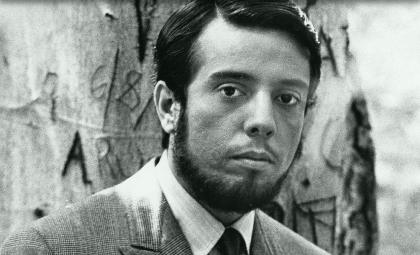In Brazil, there’s a saying ‘tudo bem’ (everything’s cool) which just about encapsulates how Brazilians are - easy going and upbeat - and how they go about life - avoiding problems and making the best out of life. In the global music industry, known for its cut-throat environment, they say you have to be tough. Or perhaps, be so calm that you remain still, in the eye of the storm, while everyone else is pushing and flapping around you. A few minutes talking to Sergio Mendes, probably music’s most recognised Brazilian name, and you can immediately tell that he has managed to sustain an astonishing 50-year career in music by doing the latter. He possesses that ‘tudo bem’ vibe that would disarm the fiercest industry shark.
Sergio Mendes leapt to international fame in 1966 and brought Brazilian music to the world stage with the “Brasil 66” LP, produced by Herb Alpert. Its hit single, a rendition of Jorge Ben’s Mais Que Nada was the first time that a song, sung entirely in Portuguese, reached the top five on the Billboard magazine pop chart.
Forty years on, in 2006, Sergio topped the charts and music channels again, co-producing a Black Eyed Peas remix of that song. Between then and now, Mendes has toured internationally with Frank Sinatra, produced several gold and platinum records and many hit songs, won several Grammys and an Oscar nomination (for the animated film ‘Rio’), and made records with Stevie Wonder, Jill Scott, India Arie, Justin Timberlake, John Legend, Q-Tip, Erikah Badu among many others. To use a cliché, Mendes is a living legend.
But it’s easy to forget, with his stellar lined CV and his credentials (some say the man who put the funk into Bossa Nova, others say Brazil’s Perez Prado, bringing Bossa Nova to the world, where Prado brought Mambo) that Sergio is essentially a Jazz man, who lived through very special musical times.
Imagine being in Rio in the early ‘60s, a bar on the beach, the long hair and swaying hips of passing girls inspiring melodies such as The Girl from Ipanema, and the great US Jazz musicians routinely appearing to hear first hand the amazing sound of a new music called Bossa Nova, whose songs later became standard Jazz repetoire. This is the stuff that legends are made of, the stuff of music.
Tell me about those times.
“Well, I grew up across the bay from Rio in a small town. My dad was a doctor, my mum a house-wife, and I spent my time playing football on the beach. At seven I was given a piano and started with classical music lessons. At around 12-13, I remember listening to a Dave Brubeck record and it just blew my mind. I had a little group and we started playing jazz together, copying those phrases. Then a friend opened a bar in Copacabana called the ‘Bottles Bar,’ and I started playing there with my trio.”
Was it a kind of a Jazz bar?
“Well yes, but all Brazilian music. It became a place where the now great Brazilian musicians would hang out and play, but also artists in general, poets, writers, painters. It was like a Bohemian hang out in Copacabana. That’s where I met Tom Jobim, who is really the godfather of Bossa Nova, the one who created it, writing those now legendary songs…The Girl from Ipanema, Desafinado. He became my mentor.”
What I’d give to have been there!
“Yes, it was a special moment, we were producing something special. A lot of American musicians came down, like Dizzy Gillespie, Herbie Mann, Stan Getz and were really influenced by this music. I mean, Charlie Bird went on to release ‘Desafinado’ and of course Stan Getz did his versions of ‘The Girl from Ipanema’ and many other of Jobim’s songs. People ask me if Bossa Nova was influenced by Jazz, and I say no it’s the other way round. Bossa Nova had a big influence on American Jazz, and really all thanks to Tom Jobim.”
What was your impression of the US when you first went there?
“The first time was in November ‘62 when we were invited to the Bossa Nova Festival in Carnegie Hall. I was in the company of all these Jazz greats, playing with the likes of Cannonball Adderley, so I was in complete awe. And of course the city, I came from a little town, and it was so big, everything was big and it had this energy… the things that dreams were made of.”
In 1964, a military coup in Brazil (as later in many other Latin American countries,) sent musicians and artists fleeing. Mendes had just had his first child and decided to go to the US. There he met Jazz entrepreneur Herb Alpert who signed him up and in 1966 helped produce his first platimun album, Herb Alpert Presents Sergio Mendes and Brasil '66, its success largely due to one song, Mais Que Nada, which put Brazil on the commercial music map.
Why did you chose that song?
“Well, I’d been playing that song since ‘63 back in the Bottles Bar. I remember a young guy called Jorge Ben walking in. He was another great composer and this was one of his songs. I played it a lot there, so was used to playing it and, of course, wanted to record it. It is a fantastic song.”
The history of music is full of stories of artist resentment and rivalry. I wondered whether Ben, a hugely talented songwriter and musician, whose career dipped in the ‘70s, despite recording albums now seen as classics, had felt resentful at Mendes’ soaring success on the back of his song. So I ask:
How did Jorge Ben feel about you making that song so big?
“He felt great. What do you think?! All composers like their songs being made a success!”
I laugh. Of course, typical journalist, always probing for problems. In this case, I realise the ‘problem’ is a journalist’s projection. In all the interviews I’ve seen, Mendes goes out of his way to credit his Brazilian peers and, indeed, has used his success to promote their music. Besides, as Mendes reminds me, Jorge Ben now has the national and international success he has always deserved, along with Gilberto Gil, Caetano Veloso, and Milton Nascimento. Each of these titans of Brazilian music is very different; their careers have taken equally diverse but successful paths.

Sergio talks with affection and appreciation for fellow Brazilian artists and despite living in Los Angeles stays very much in touch with his roots. Indulging in another of my nostalgia fantasies I ask if he saw Gilberto Gil and Caetano Veloso in London in the ‘60s and ‘70s when they too were living in exile during the Brazilian military regime.
“In fact yes! When I did my first tour with ‘Brasil ‘66,’ Gilberto Gil opened for me. We were both starting out then. It was the hippie era in London, just like in San Francisco where I was living.”
Were you a hippie?
“Er, no.” He laughs.
Of course, no one associates the worlds of Bossa Nova and Jazz that Mendes’ inhabited with tie-dye t-shirts. But sometimes, people categorise Bossa Nova as ‘Easy Listening,’ implying a superficiality that is mistaken and annoying. In my opinion, its lyrical and rythmic complexity makes it more similar to Jazz than anything else, and looking for enlightenment, I urge Mendes to elaborate:
Why did all those Jazz musicians fall in love with Bossa Nova?
“Well, Jazz has been around a long time, it started in the cotton fields and developed in many different ways over time. Brazilian music has been around for a long time too, and has many influences, African, European, like the people too. Bossa Nova is part of that tradition but is also a specific style that started at a specific time which was 1959 and pretty much revolved around the compositions of one man, Tom Jobim. It was very unique, and the musicians who created this style were great songwriters. So in it, many musicians, not just Jazz musicians, discovered a new melodic source, and embraced its great song writing and lyricism. When I play these songs, people love their romanticism and sensuality, they just make people feel good. You have amazing songwriters later on too, like Caetano Veloso and Gilberto Gil, but it was very different, another generation.”
Are there any new songwriters on that level, the level of Jobim, Gil and Veloso?
“I really like Guinga and Maria Gadú. They’re great songwriters and have their own very special styles. Time will tell whether they’ll be as successful as, say, Caetano Veloso but they have their own unique sound and I really like their music.”
I’d like to return to the theme of surviving in what is known as a notoriously fickle industry. Who over the years have remained your lasting friends and to whom do you feel most grateful?
“You know, it’s very interesting that you ask this question because just last night I had dinner with Herb Alpert and his wife. It was Herb who first signed me and helped me break into the US market. We’re still very good friends. We were reminiscing about old times; we see each other often and are very close. I’ll always be grateful to him and that’s why I always tell young people, you have to be grateful to the people who help you.”















